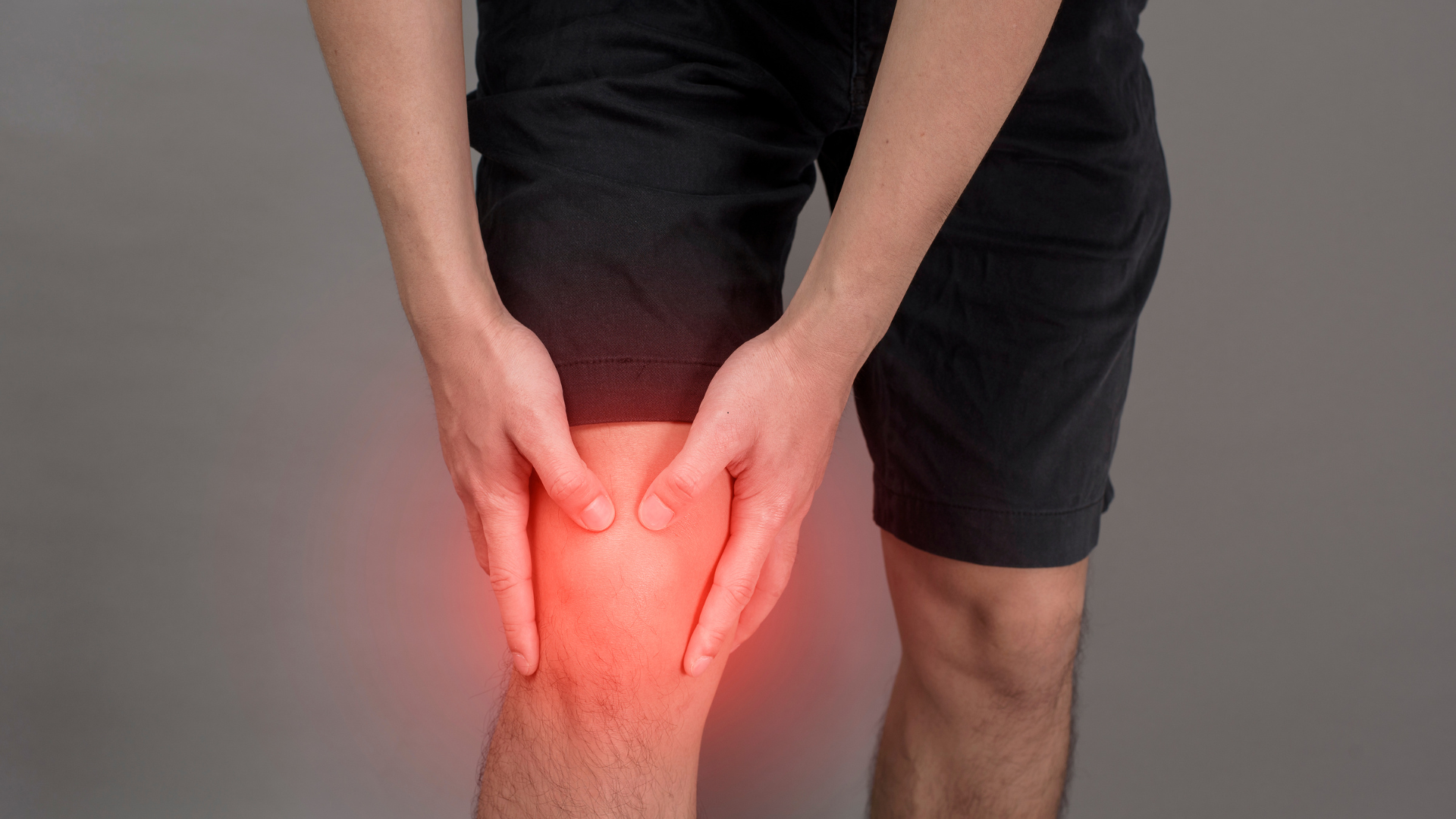
CONTENTS
You notice your knee looking swollen, almost as if it’s holding extra fluid. Walking feels stiff, bending is uncomfortable, and even climbing stairs seems harder. You may be asking yourself: Why is my knee swollen? Do I need treatment, or will it go away on its own?
The good news is that not all cases of fluid in the knee require surgery. With the right care and accurate diagnosis, many patients find lasting relief through targeted non-surgical treatments.
Why does my knee swell up?
Your knee is a complex joint made up of bones, cartilage, ligaments, tendons, and fluid-filled sacs. Swelling — sometimes called knee effusion or water on the knee — happens when something irritates or injures these structures, causing inflammation or fluid buildup.
Common causes include:
- Arthritis – wear-and-tear (osteoarthritis) or autoimmune (rheumatoid arthritis) can inflame the joint and cause a swollen knee joint
- Injury – ligament sprains, meniscus tears, or fractures may cause sudden swelling with pain
- Bursitis – irritation of the fluid sac that cushions the joint
- Tendonitis – inflammation from repetitive overuse or sports activities
- Gout or infection – uric acid crystals or bacteria can trigger painful swelling and joint inflammation
While mild swelling may improve on its own, persistent or recurrent swelling often signals an underlying issue that needs medical attention.
What can I do at home for knee swelling?
If your knee swelling is mild, start with conservative care at home:
- Rest – avoid activities that strain the joint and worsen the swelling
- Ice packs – 15–20 minutes at a time to reduce joint inflammation
- Compression bandage – helps limit fluid in the knee buildup
- Elevation – raise your leg above heart level to ease pressure
- Pain relief – over-the-counter medication (if safe for you)
These first steps give your knee a chance to calm down. But if swelling lingers beyond a week, worsens, or is paired with a stiff knee, don’t ignore it.
When should I see a doctor for a swollen knee?
You should seek medical evaluation if you notice:
- Swelling that lasts more than a week
- Severe pain or sudden inability to bear weight
- Knee locking, catching, or giving way
- Fever with swelling (possible infection in the joint)
- Recurrent swelling without clear cause
At DR+ Medical & Paincare clinic, we use Painostic® assessments — combining movement analysis, imaging, and medical history – to identify the true cause of your swollen knee joint. This ensures treatment is precise, not just temporary relief.
What non-surgical treatments help knee swelling?
If home remedies are not enough, minimally invasive options can provide long-lasting relief for knee effusion treatment:
- Coreflex® injections – targeted, image-guided injections to reduce pain and inflammation while promoting healing
- PRP (Platelet-Rich Plasma) – stimulates tissue repair using your body’s own platelets
- Viscosupplementation (Hyaluronic Acid) – cushions the joint and improves mobility in osteoarthritis knees
- Physiotherapy – strengthens muscles, restores flexibility, and prevents stiffness
- Lifestyle modifications – weight management, low-impact exercises, and joint-friendly habits
Most patients find that combining physiotherapy with targeted injections offers faster recovery and helps prevent long-term joint damage.
The bottom line: Can knee swelling be treated without surgery?
Yes – in most cases, surgery is not the first step. Early evaluation, personalised treatment, and minimally invasive care can relieve swelling, restore mobility, and keep you active without the risks of major surgery.
If your swollen knee is affecting your daily life, don’t wait until it worsens. Book an appointment with our team today and explore your options for lasting, non-surgical relief.
👉 Looking for effective knee effusion treatment? Contact us today to schedule your consultation and get back to moving pain-free.



